Fordham Law’s clinics offer students the opportunity to apply what they’re learning in the classroom to real-world legal and public interest work. Students who participate have the opportunity to gain practical experience in a variety of areas including international human rights, family advocacy, immigration rights, and corporate social responsibility. Several Fordham Law clinic alumni, inspired by their clinical experience and the professors who supervised them, have gone on to become clinical professors, founders, and directors themselves. Fordham Law caught up with 10 of them to find out how their time in Fordham Law’s clinics impacted their work and lives after law school.
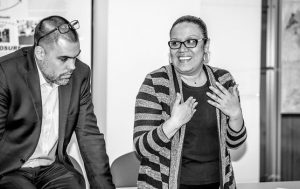 Carmen Huertas-Noble ’02 is a professor and the founding director of CUNY Law’s Community & Economic Development Clinic. The Clinic works with organizations in the community to address issues such as economic democracy, worker justice, and anti-displacement. While at Fordham, Huertas-Noble worked in the Community Economic Development Clinic and was a Stein Scholar in Public Interest Law. In addition to her clinic work, Ms. Huertas-Noble’s research and scholarship focus on promoting alternative ownership models, including community land trust and worker-owned cooperatives.
Carmen Huertas-Noble ’02 is a professor and the founding director of CUNY Law’s Community & Economic Development Clinic. The Clinic works with organizations in the community to address issues such as economic democracy, worker justice, and anti-displacement. While at Fordham, Huertas-Noble worked in the Community Economic Development Clinic and was a Stein Scholar in Public Interest Law. In addition to her clinic work, Ms. Huertas-Noble’s research and scholarship focus on promoting alternative ownership models, including community land trust and worker-owned cooperatives.
Professor Sarah Lorr ’10 is the deputy director of the Disability and Civil Rights Clinic at Brooklyn School of Law which works to protect and advance the civil rights of adults with intellectual and developmental disabilities. At Fordham Law, Lorr was a Stein Scholar and editor of the Fordham Law Review. She has also received the Ann Moynihan Award for outstanding performance for her work in the International Justice Clinic and the Robert Aram Renzulli Prize in Criminal Law.
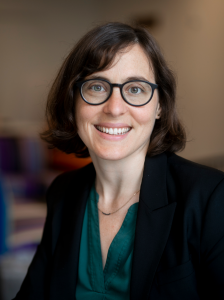
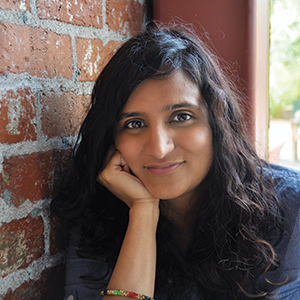 Associate Professor Gowri Krishna ’06 leads the Nonprofit and Small Business Clinic at New York School of Law. The Clinic’s work focuses on counseling New York City nonprofit and community-based organizations, worker cooperatives, social ventures, and neighborhood-based entrepreneurs that need but cannot afford legal services for corporate formation, governance, tax and real estate issues, and contracts. During her years at Fordham Law, Krishna studied in the Community and Economic Development Clinic, which she later came back to teach in, before leading the expansion of the Urban Justice Center’s Community Development Project.
Associate Professor Gowri Krishna ’06 leads the Nonprofit and Small Business Clinic at New York School of Law. The Clinic’s work focuses on counseling New York City nonprofit and community-based organizations, worker cooperatives, social ventures, and neighborhood-based entrepreneurs that need but cannot afford legal services for corporate formation, governance, tax and real estate issues, and contracts. During her years at Fordham Law, Krishna studied in the Community and Economic Development Clinic, which she later came back to teach in, before leading the expansion of the Urban Justice Center’s Community Development Project.
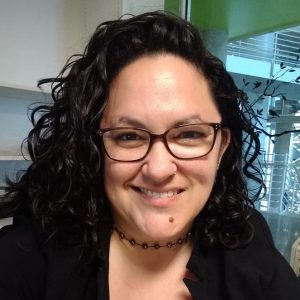 Professor Katy Clemens’ 06 co-supervises the Bob Parsons Veterans Advocacy Clinic at the University of Baltimore. It represents veterans before courts and administrative agencies in civil and veterans benefits matters. Students involved with the clinic have the opportunity to engage in its community education, legislative projects, and other systemic efforts at law reform. As a student at Fordham Law, Clemens realized her passion for clinic work while participating in the Community Economic Development Clinic.
Professor Katy Clemens’ 06 co-supervises the Bob Parsons Veterans Advocacy Clinic at the University of Baltimore. It represents veterans before courts and administrative agencies in civil and veterans benefits matters. Students involved with the clinic have the opportunity to engage in its community education, legislative projects, and other systemic efforts at law reform. As a student at Fordham Law, Clemens realized her passion for clinic work while participating in the Community Economic Development Clinic.
 Zohra Ahmed ’13 is a clinical teaching fellow in the Cornell Center of the Death Penalty WorldWide. She co-teaches the International Human Rights Policy Advocacy Clinic at Cornell Law School and works with students on key lawyering skills such as interviewing, legal research, legal writing, and developing practical solutions to complex problems.
Zohra Ahmed ’13 is a clinical teaching fellow in the Cornell Center of the Death Penalty WorldWide. She co-teaches the International Human Rights Policy Advocacy Clinic at Cornell Law School and works with students on key lawyering skills such as interviewing, legal research, legal writing, and developing practical solutions to complex problems.
My experiences as a Stein and Crowley Scholar and a student in the Federal Litigation clinic were life-changing, and are what led me to clinical education. Both Martha Rayner and Michael Martin were incredibly supportive in my transition to teaching. – Zohra Ahmed ’13
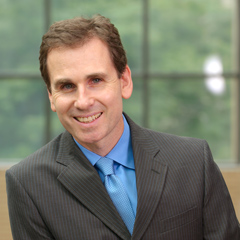 A former participant in Fordham Law’s Litigation Skills Clinic (now the Federal Litigation Clinic), Michael W. Martin ’92 is now the associate dean for experiential education and a clinical professor of law in that very same clinic. In his role, Martin helps students hone their interviewing skills, perform multifaceted legal research, develop case theories, and engage in counseling and negotiation. In 2018, he and his students claimed victory in the U.S. Court of Appeals for the Second Circuit with a favorable ruling in a housing discrimination case.
A former participant in Fordham Law’s Litigation Skills Clinic (now the Federal Litigation Clinic), Michael W. Martin ’92 is now the associate dean for experiential education and a clinical professor of law in that very same clinic. In his role, Martin helps students hone their interviewing skills, perform multifaceted legal research, develop case theories, and engage in counseling and negotiation. In 2018, he and his students claimed victory in the U.S. Court of Appeals for the Second Circuit with a favorable ruling in a housing discrimination case.
Ian Weinstein and Beth Schwartz were pivotal in my decision to become a clinical professor. Their love of their students, clients and job was palpable. – Michael W. Martin ’92
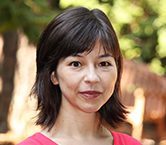 Once a member of Fordham Law’s Immigration Rights Clinic and the recipient of the Stein Public Interest Scholarship, Aya Fujimura-Fanselow ’04 is now the supervising attorney of Duke Law School’s International Human Rights Clinic. She works with students to develop human rights advocacy tactics—such as fact-finding, litigation, indicators, reporting, and messaging. She previously taught as a Crowley Fellow and Adjunct Professor of Law at the Leitner Center for International Law and Justice at Fordham Law where she led fieldwork and taught a seminar to investigate and develop advocacy strategies to respond to the human rights violations resulting from the excessive and arbitrary use of pretrial detention in Bolivia.
Once a member of Fordham Law’s Immigration Rights Clinic and the recipient of the Stein Public Interest Scholarship, Aya Fujimura-Fanselow ’04 is now the supervising attorney of Duke Law School’s International Human Rights Clinic. She works with students to develop human rights advocacy tactics—such as fact-finding, litigation, indicators, reporting, and messaging. She previously taught as a Crowley Fellow and Adjunct Professor of Law at the Leitner Center for International Law and Justice at Fordham Law where she led fieldwork and taught a seminar to investigate and develop advocacy strategies to respond to the human rights violations resulting from the excessive and arbitrary use of pretrial detention in Bolivia.
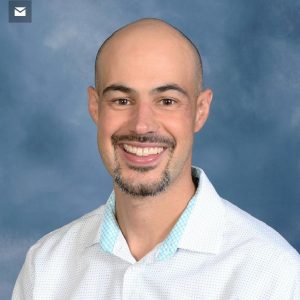 Jesse Loper’s ’09 work with the Urban Policy Clinic as a student at Fordham Law set the trajectory for a career helping low-income communities and workers fight for fair treatment and better situations. He went on to work for the Department of Housing and Urban Development where he worked with clients provided counsel on Public Housing, Fair Housing Act enforcement, labor relations, and Community Planning and Development programs. Currently, Loper is a Clinical Fellow in the Community and Economic Development Clinic at the University of Denver Sturm College of Law where he is teaching law students how to advise small business and nonprofit clients on navigating government funding and regulatory requirements.
Jesse Loper’s ’09 work with the Urban Policy Clinic as a student at Fordham Law set the trajectory for a career helping low-income communities and workers fight for fair treatment and better situations. He went on to work for the Department of Housing and Urban Development where he worked with clients provided counsel on Public Housing, Fair Housing Act enforcement, labor relations, and Community Planning and Development programs. Currently, Loper is a Clinical Fellow in the Community and Economic Development Clinic at the University of Denver Sturm College of Law where he is teaching law students how to advise small business and nonprofit clients on navigating government funding and regulatory requirements.
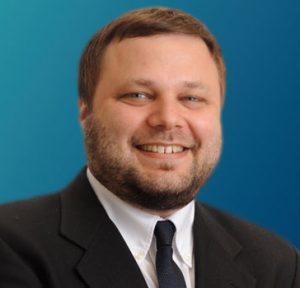 Now the attorney in charge of the Community and Economic Development Clinic at Hofstra Law School, Professor Michael L. Haber ’05 participated in a clinic by the same name as a student at Fordham Law. His clinic assists nonprofits and small businesses in low-income communities, especially those that contribute to social and economic justice, with start-up counseling and other more complex matters such as real estate transactions and employment law. Haber also co-founded Old Money, New System Community of Practice which brings together philanthropy professionals, activists, and legal and policy experts to reconfigure private foundations to be more accountable to communities of color and social justice movements in the wake of the Movement for Black Lives.
Now the attorney in charge of the Community and Economic Development Clinic at Hofstra Law School, Professor Michael L. Haber ’05 participated in a clinic by the same name as a student at Fordham Law. His clinic assists nonprofits and small businesses in low-income communities, especially those that contribute to social and economic justice, with start-up counseling and other more complex matters such as real estate transactions and employment law. Haber also co-founded Old Money, New System Community of Practice which brings together philanthropy professionals, activists, and legal and policy experts to reconfigure private foundations to be more accountable to communities of color and social justice movements in the wake of the Movement for Black Lives.
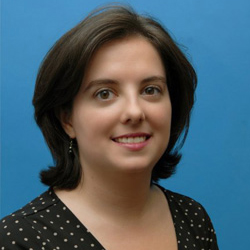 Professor Christine Lazaro ’02 says that as a student at Fordham Law it was then Fordham Law Dean Mary Daly and Professor Marcella Silverman that were “instrumental in my starting clinical teaching.” She is now the director of the Securities Arbitration Clinic at St. John’s University School of Law. In her role, she provides students an opportunity to perform casework on securities arbitration claims brought before the Financial Industry Regulatory Authority.
Professor Christine Lazaro ’02 says that as a student at Fordham Law it was then Fordham Law Dean Mary Daly and Professor Marcella Silverman that were “instrumental in my starting clinical teaching.” She is now the director of the Securities Arbitration Clinic at St. John’s University School of Law. In her role, she provides students an opportunity to perform casework on securities arbitration claims brought before the Financial Industry Regulatory Authority.

